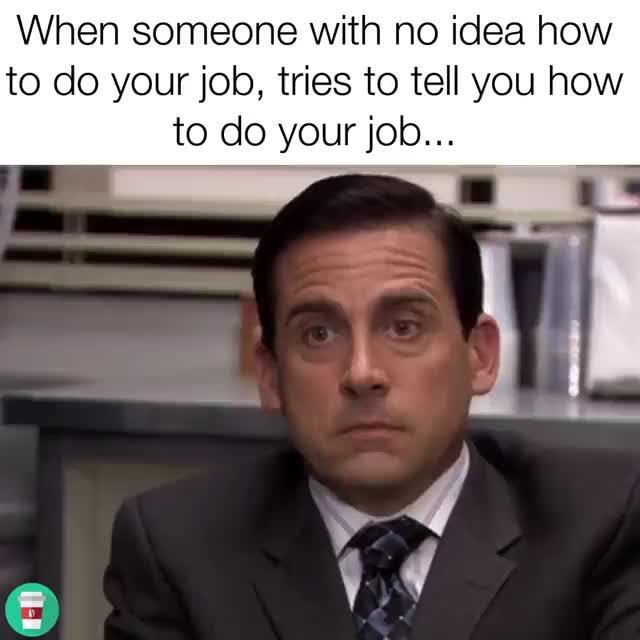Good afternoon, friends. It's Rohan with the latest edition of Coached — your personal mentorship email that takes a few minutes to read, but speeds up your career by years. |
In today's Mentor's Corner, we're talking about something that can make or break your career: feedback. Most of us know we need it to improve, but we're not always great at seeking it out. Or, when we do get it, we get defensive. |
I'll share some strategies I've found helpful for getting quality feedback and handling it well. Put these into practice, and you'll be way ahead of the curve. |
To my loyal readers: Want practical career coaching in your LinkedIn feed? Follow me there. I write stuff there that I don't cover in these emails. It makes it easy to keep your career on track. |
If you're new here: If you like the sound of getting free career coaching every week — the kind people usually pay a lot for — get my next email by signing up at Coached.com. |
Estimated read time: 4 minutes 30 seconds |
|
📈 Mentor's Corner Insights put together by me or coaches who usually charge $750+/hour and mentor senior execs. One practical lesson a week that will make a measurable impact on your career, delivered right to you — for $0. |
|
|
The art of seeking out tough feedback (and why you need to master it) |
When you look at guys doing stand-up comedy like Kevin Hart and Chris Rock, it all looks so effortless and natural. |
The timing of their jokes… |
Their facial expressions… |
The stories they tell… |
But what you see on stage isn't natural at all. It's a performance that's been honed for weeks, months, or even years, by testing out material at small comedy clubs unannounced. |
 | (Kevin Hart might perform in big arenas like Madison Square Garden. But in the year leading up to it, he's honing his material at smaller comedy clubs) |
|
There, in front of 20 people, they'll try out a new joke. |
If it bombs, they'll scrap it. |
If it gets a laugh, they'll keep it. |
So, the key ingredient for a legendary comedy routine isn't "humour" necessarily, or a talent for being on stage. |
It's feedback. |
All great comedians know this, and are masters at a) getting feedback, and b) receiving it. |
Something similar goes on in the world of work, too. |
Look at the people who've accomplished the most in your field, and chances are, they've received (and improved upon) a TON of feedback to get there. |
What you see isn't the raw lump of coal they were at the start of their career – you're seeing the glittering, polished diamond at the end. |
So, given how important feedback is… |
How do you get & receive it? |
That's what we're gonna cover today - let's go. |
🦁 Attack Dog or Appreciative? |
You offer the tiiiiiniest suggestion for doing things differently, and they bite your head off. I call these people Attack Dogs, and they all have the same effect: |
You never give them feedback again. |
|
A lot of people are like this, and it's why they get nowhere in their careers. |
(I used to be way too defensive about feedback too. It wasn't until I realized I was stunting my growth that I changed my ways.) |
|
If you want to receive more, and higher quality feedback, be appreciative instead of an attack dog. |
Because if you make the other person feel great about giving you feedback, guess what? They're going to give you more in future. |
The lesson: Show people that you're coachable. |
|
🙋🏻♂️ Make the first move |
When you do something out of choice rather than having it forced upon you, your body reacts in a totally different way. (For example, voluntarily going to Toastmasters vs. being forced to give a speech.) |
The same's true with feedback. |
If you ask for harsh feedback, you'll be far less defensive than if you have to wait for harsh feedback to come to you. |
The lesson: Be open to asking for feedback. |
|
📊 Ask for a 0-10 score. |
It's hard to get honest feedback because people tend to be polite! So sometimes you have to ask for it in a way that shows you're comfortable with receiving it. |
If you're struggling to get feedback when you ask for it, try this: |
When you've finished a project/task, ask for a score between 0 and 10. |
No-one will say 10, so ask them how you can get closer to 10. |
If you did this every week of the year, you'd have 50-odd data points for improving your craft. That's the difference between being pretty good and great. |
(h/t I got this tip from organizational psychologist Adam Grant) |
|
📅 Schedule it |
Set up a time with your boss where you can talk about your performance, and ask how you can improve. Your boss will be impressed with your initiative, and it's often a nice segue to discussing promotions. |
If you can find out the qualities at the level above you, and start showing them, you'll be a solid pick when the promotion rolls around. |
|
🙅🏻♂️ Disclaimer: All feedback isn't created equal |
Now, this doesn't mean all feedback is going to be helpful. It's your job to take in all the feedback you get, but also think about who you're getting it from. |
If you wanted to be a stand-up comedian, but asked someone who's sensitive to the jokes you like, they'd probably say they hate it. That feedback isn't really useful, because it's not coming from your target audience. Humor's subjective. |
Similarly (and slightly controversial), sometimes your friends and family aren't the right people to give you feedback, even though they might be the easiest to ask. |
Why? Because they care about you. They don't want to hurt your feelings. So they might hold back on giving you the tough love you need to improve. |
The point is, take in all the feedback you get as data points, but choose what you want to use. Not all feedback is good feedback! |
 | 🤣 not all feedback's equal! |
|
And we're done! I hope this changes the way you look at feedback and inspires you to start seeking it out more. Most of us fear asking for it, but changing that is key to a great career. |
 | asking for feedback isn't easy…but it's your responsibility to get over the inner monologue |
|
These emails take a lot of time and money to put together. But I keep them free, because that seems like the best way to help the most people (and makes me feel a little more useful to the world). |
In return, here's my ask: |
If an email changes the way you think, opens your mind to a new perspective, or gives you an insight you get value from, do one of these: |
|
It really does help — thank you. |
|
From Our Team Tried all our AI tools? | Want a better resume? Upload it to Score My Resume and get expert feedback, instantly. You'll find out if and where your resume falls short. Get your resume review |  |
| Want to make your LinkedIn profile work for you? LinkedIn Review will show you how to optimize it so you get more leads, jobs and opportunities through LinkedIn. Optimize your profile |  |
| Want to get past the ATS? Targeted Resume will check if your resume has the right keywords. Target your resume |  |
| |
|
|
|
|
|
 | 🤣 on the note of feedback |
|
 | 🤣 a classic |
|
|
🔎 Speed Up Your Job Search One actionable piece of advice to help you hack your job search. |
How to make your resume more accomplishment-oriented |
Read the full article here. |
When friends come to me for help on their resumes, the biggest change I tell them to make is to tweak their bullet points so they're focused on what they actually accomplished, and not generic stuff that was part of their job (i.e. responsibilities). Here's the difference: |
|
Consider the statement above. It explains what you were tasked with, but not how well you did it. It sounds like it was pulled straight from a job posting, which makes it too generic for a resume. |
Here's what you could write instead — it's an accomplishment, something you actually achieved (do this!): |
|
I'd recommend uploading your resume to Score My Resume to identify any mistakes on your resume that recruiters tend to look out for. It'll check each of your bullet points and make sure they're accomplishment-focused. Try it. |
(Btw, don't forget to try out the Magic Write feature within the tool, which will use AI to rewrite your bullet points and make them all accomplishment-oriented). |
|
|
If you're new here, let's get the intros out of the way. |
I'm Rohan. Six years ago, I found myself frustrated with the sea of misleading career advice online, so I started Resume Worded. The goal was simple: provide guidance that actually works. |
But resumes were only the tip of the iceberg. There was a lot of clichéd, generic career advice out there. So, I started this email series, Coached. Each week, I talk about real career strategy, informed not only by my experiences but by my conversations with industry leaders, senior coaches who train CEOs, and people with way more experience than I have. |
Every email you receive is written by me, not a ghostwriter. I'm here, on the other end, reading your replies. |
Until next time, |
|
Rohan @ Resume Worded |
|
|
What'd you think of today's edition? |
👍 I loved it. |
🤔 Pretty average, step it up. |
🤢 You didn't bring enough value. |
Here are some reviews of last week's email. Leave one here. |
|
|
That's so kind of you, Lucy and Anderson — thank you so much. Some days I don't feel like writing these up, but reviews like these give me the push I need to stop justifying my excuses :) |
|
P. S. To make sure your career never goes off the rails, don't miss my future emails. A simple way to make sure you get each email is: |
If you're using Gmail, hit the 3 dots at the top-right corner, and choose Move to -> Primary. Or drag this email to Primary if you're on your computer. If you're using Apple Mail, tap on our email address at the top of this email (next to "From:" on mobile) and click "Add to VIPs.".
|
|
Comments
Post a Comment